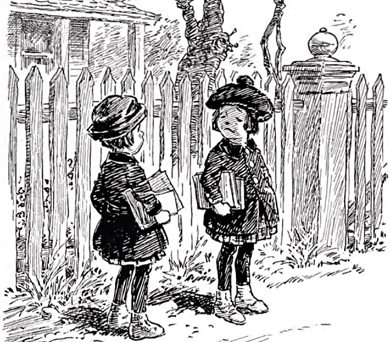I am an American woman but I had no opportunity until a few years ago to know women in America. Living as I did in China, it is true that I saw a few American women; but that is not the same thing. One was still not able to draw many conclusions from them about American women. I gathered, however, that they felt that girls in China had a hard time of it, because there every family liked sons better than daughters, and, in the average family, did not give them the same education or treatment. In America, however, they said people welcomed sons and daughters equally and treated them the same. This, after years in a country which defines a woman’s limitations very clearly, seemed nothing short of heaven — if true.
Therefore when I came to America to live I was interested particularly in her women. And during these immediate past years I have come to know a good many of them — women in business, artists, housewives in city and country, women young and old. I have taken pains to know them. More than that, I have made my own place as a woman in America. And I find that what I anticipated before I came here is quite wrong. It seems to me that women are very badly treated in America. A few of them know it, more of them dimly suspect it, and most of them, though they know they ought to be glad they live in a Christian country where women are given an education, do not feel as happy in their lonely hearts as they wish they did. The reason for this unhappiness is a secret sense of failure, and this sense of failure comes from a feeling of inferiority, and the feeling of inferiority comes from a realization that actually women are not much respected in America.

Tradition is very strong in this backward country of ours. We Americans are a backward nation in everything except in the making and using of machines. And we are nowhere more backward than we are in our attitude toward our women. We still, morally, shut the door of her home on a woman. We say to her, “Your home ought to be enough for you if you are a nice woman. Your husband ought to be enough — and your children.” If she says, “But they aren’t enough — what shall I do?” we say, “Go and have a good time, that’s a nice girl. Get yourself a new hat or something, or go to the matinee or join a bridge club. Don’t worry your pretty head about what is not your business.”
So, though I am impressed with the fact that American women do not, as a group, seem happy, privileged as they are, I am not surprised. I know that happiness comes to an individual only as a result of personal fulfillment through complete functioning of all the energies and capabilities with which one is born. I do not for a moment mean that all women must go out and find jobs and “do something” outside the home. That would be as silly and general a mistake as our present general clinging to tradition. I simply mean let us be realistic. Let us face the fact that as a nation we are in a medieval state of mind about the place of women in society.
We are so clever with machines, we Americans. But we have done a silly thing with our women. We have put modern high-powered engines into old antiquated vehicles. It is no wonder the thing is not working. And there are only two courses to follow if we do want it to work. We must go back to the old, simple, one-horsepower engine or else we must change the body to suit the engine — one or the other. If the first, then tradition must be held to from the moment a woman is born, not, as it now is, clamped upon her when, after a free and extraordinarily equal childhood and girlhood with boys, she attempts to enter into a free and equal adult life with men and finds it denied her, to discover then that her education has had nothing to do with her life.
Or else we must be willing to let her go on as she began. This means that American men must cease being “sweet boys” and grow up emotionally as well as physically and face women as adult men. But they, poor things, have not been fitted for that either! Besides, of course, they are afraid of what women might do.
From “America’s Medieval Women,” which appeared in the August 1938 issue of Harper’s Magazine. The complete essay — along with the magazine’s entire 167-year archive — is available online at harpers.org/fromthearchive.








































































































